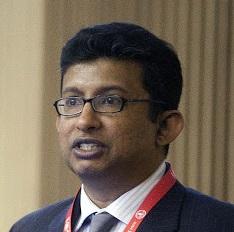Modeling Urban Growth and Agglomeration with Large-Scale Mobile Phone Data
This project examines the impact of transport infrastructure on labour market outcomes in Sri Lanka. As a first step, it considers how changes in transport – such as new roads and bus routes – can affect labour mobility. Next, it attempts to understand how these changes in mobility affect wages for labour and related labour market outcomes. The project will also speak to the extent to which Call Detail Records (CDR), or anonymized cellular communications log dataset, are useful to model the spatial distribution of economic activity, and the density and movement of disaggregated populations, such as labour.
The mobility of labour will be traced through millions of individual time series constructed through anonymised call records, made available to the team for roughly half the population of Sri Lanka. The dataset includes logs of: (a) all calls made and received, (b) all SMSs sent, (c) all pings to the Internet, and (d) all tops up. These records are geo-located to the level of the nearest cell phone tower, which will allow for the trace of mobility at a micro level. In addition to the mobility data, the researchers will construct an original dataset on road and transport infrastructure changes. Transport shocks can then be attributed to individuals, whose mobility can be traced via CDR.
The research is relevant for growth policy in the following ways: first, empirical research on the nature constraints to labor mobility – a critical driver of firm productivities – lacks accurate data on worker locations. Using high-precision locational data for millions of individuals will provide new insight into how and why mobility is constrained, and the effects on mobility of alleviating these constraints. Second, with the end of the civil war in Sri Lanka, the government is investing heavily in the development of infrastructure. This project will shed light on the immediate impacts of these policies on labor. Third, the analysis of large datasets is increasingly within the mandates of public and civil society organizations. This project will enable the development of in-situ capacity within Sri Lanka on setting up, and analysing a large dataset in the policy context. With billions of mobile phones being used in developing countries, the data generated and captured by mobile operators presents a promising source of data on the behavior of populations in cities.
This project builds on previous work using aggregated macro-economic outcomes to link labor mobility and growth. Our empirical approach focuses on a series of concentrated policy changes to urban policy in a large urban area over a relatively short period of time. Exploiting an extremely high-resolution dataset on the mobility patterns of millions of individuals in Sri Lanka, we can precisely observe the short- and long-term effects of several exogenous shocks to transportation infrastructure. In particular, we can estimate the effect of infrastructure shocks on individual travel patterns, and aggregate these effects to the neighborhood, city, and district level.




